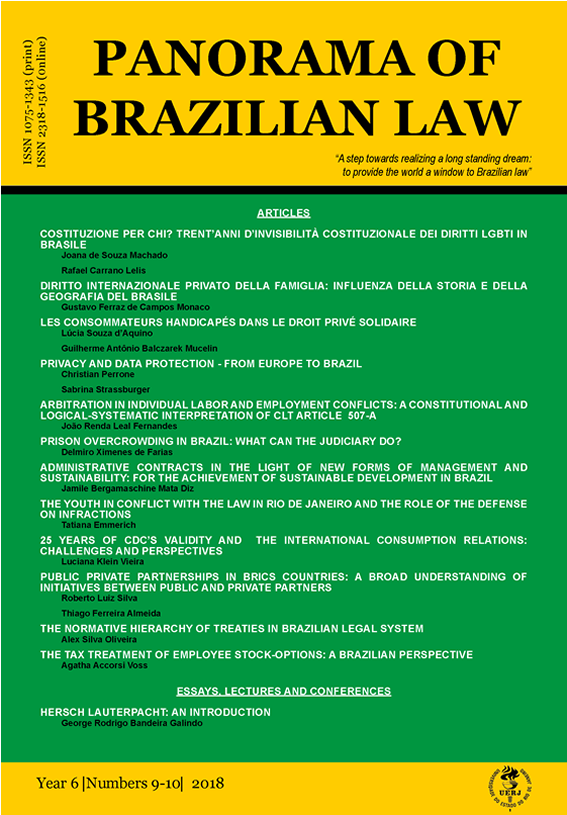OVERCROWDED PRISONS IN BRAZIL: WHAT JUDICIARY CAN DO?
Abstract
This paper has as study field the judicial activism regarding prison’s public policies. It intends to question if could be possible a judicial control about public policies in the context of Brazilian’s overcrowded prisons. The prisons are inhuman, violating the inmates’ fundamental rights. This judicial review is grounded in the current separation of powers conception. In addition, the Constitution and the ordinary law of criminal punishment impose to the public administrator the respect about the prisoners’ rights, and must implement policies to reduce the inmate’s overcrowding. In the omission of the Executive, the Judiciary can order to that one to build more prisons. However, there is restrictions regarding the discretion of the public administrator, although he must build and restore the prisons, he can choose the way to this end. To reach this conclusion, have been used books, papers, judicial decisions and data about the prison system.Downloads
Published
2019-09-09
How to Cite
Farias, D. X. de. (2019). OVERCROWDED PRISONS IN BRAZIL: WHAT JUDICIARY CAN DO?. PANORAMA OF BRAZILIAN LAW, 6(9-10), 124–139. Retrieved from https://www.e-publicacoes.uerj.br/pbl/article/view/34676
Issue
Section
Articles
License
Panorama of Brazilian Law employs Open Journal Access policies.
Authors are fully and exclusively responsible for their submissions.
Authors who publish with this journal agree to the following terms:
- Authors retain copyright and grant the journal right of first publication with the work simultaneously licensed under a Creative Commons Attribution-NonCommercial-ShareAlike 4.0 International License that allows others to share the work on a non-comercial basis with an acknowledgement of the work's authorship and initial publication in this journal and indicating if any changes were made. If you remix, transform, or build upon the material, you must distribute your contributions under the same license as the original.
- Authors are able to enter into separate, additional contractual arrangements for the non-exclusive distribution of the journal's published version of the work (e.g., post it to an institutional repository or publish it in a book), with an acknowledgement of its initial publication in this journal.

